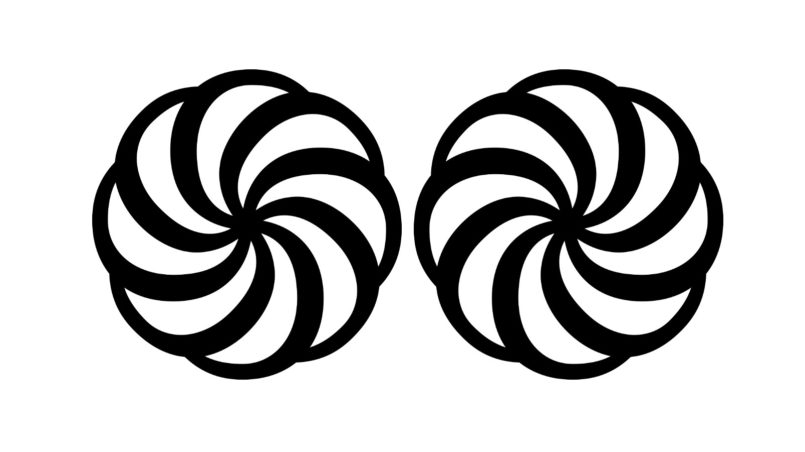Spirituality and Rationality – a first approximation

Spirituality is a wide topic, a topic of mankind, which, without exception, affects all of us. It concerns the individual manner with which people deal with the unconditional, the infinite, which founds all his or her concrete life – yet it seems that it is often disqualified as a marginal phenomenon of society: as “esotericism” in a pejorative (derogatory) sense.
This is also due to the modern – generally speaking positivistic – idea of “accurate” science which increasingly excludes “spiritual” things, whereby often a certain “object tenacity” is too idiosyncratic even for the humanities – for example, regarding language and the language ability of people. Ludwig Wittgenstein‘s statement that “the correct method of philosophy would really be: to say nothing except what can be said, i.e. propositions of natural science […]“1 in his Tractatus Logico-Philosophicus, which was published in 1921, serves as a paradigm.
To this extent, a tendency of a surely worrying “apathy and resignation regarding ‘the last’ and fundamental questions of truth“2 can, without a sweeping judgement, be diagnosed, especially in the humanities, which emulate the accuracy ideal of modern natural sciences. The rise of modern science actually began with the explicit methodological exclusion of the last question. Exemplary for this is Isaac Newton‘s well-known formula: “Hypotheses non fingo” (“I frame no hypotheses”). In the history of thought, the development of modern western materialism is found with the emergence of a dualistic world view of the early modern period.3
In any case, the so-called “classics” are often quoted as they, in a very expressive language, are able to express their life insights so that their sentences and verses became the companions of life for people over generations – and they still can. In this small series on spirituality and poetry, I, in this sense, want to point out some of the great classic-words as regards the great mankind topic of spirituality, cautiously roughly classify them and briefly outline their essence:
This is, basically, really easy to understand if you are open for the term of spirituality in general. If you are willing to take the phenomenon of religion seriously – and do not only disqualify the different religions in pseudo-explained tolerance in an authentic way only as mere culture, folklore so to speak – then you basically have two possibilities. Either one single religion has a claim to the sole truth and the others are wrong or something universal exists, which underlies the phenomenon of religion and which combines all the religions of the world in their differences with one another. But the first alternative simply cannot be justified rationally and eventually is nothing more than a regression in dogmatics. However, the second alternative, that something like a universal essential core exists in all religions, is far more likely. To speak in the words of Eugen Drewermann:
Surprisingly, in every religion, however mistrusted, chased, suppressed or decried they are, there exists some form of piety and search for God, which, at all times and zones, without churchly dogma, without theological scholarship and without the official supervision of ecclesiastical ‘superior’ manages to get along – the mystic, and it cannot be a coincidence that all its experiences resemble each other extraordinarily.4
This can also be supported in a deeply philosophical way: due to the structure of reflection of the human self-consciousness, in which the whole infinite world is reflected, the individual is, by implication, part of the infinity of cosmos in his being: you can understand it as, to quote the important philosopher Georg Wilhelm Friedrich Hegel, “the reflection of eternal beauty, as the spiritual focus of the universe.”5
With this, not only the first humiliation of mankind of Sigmund Freud, the cosmological humiliation, according to which the human, after the Copernican Revolution, had to accept that the earth was not the centre of the universe, was, in terms of the theory of consciousness, set aside. This deep insight into the infinitude character of the human consciousness justifies the interminability of all human individuality and, therefore, the untouchable dignity of humans. For “this infinity-sense constitutes the human selfhood from the beginning.“7
In the following we will understand this reference to the infiniteness of humans as the universal phenomenon of all religions.
Now we can understand that religions not only have a cultural-historical related part, “i.e. everything of cultural tradition and custom is part of a passed on religion”, but also a trans-religious, spiritual and absolute essence, in particular regarding the infiniteness itself. In the words of Paul Tillich, philosopher of religion, we can talk of the “holy”, “which should absolutely affect us”.8
We understand this essence as the “in all religions […] living common spirit”9. The different forms of cultural mediation can be understood as a foundation of a concrete expression of this abstract core. At best, the respective rituals and conventions serve to impart individual experience of the own reference to infiniteness, which we want to call spiritual. Whether or not these distinctions are explicitly known by the believers remains to be seen for the individual quality of experience.
However, where the cultural-historical conditional expression is taken in the form of rituals and customs for the actually unconditional core, which is ultimately noticed, this basically concerns fundamentalism:
This caricatures the steps of inner and joint elevation of the community to the godly. The lack of distinction of the basically religious, in the core mystical experience from the respective cultural outfitting, therefore the sticking to traditions and letters, their confusion with the basic religious, constitutes fundamentalism.10
Conversely, spirituality is the individual form of cultivation of the respective reference to infiniteness.
1 Ludwig Wittgenstein: Tractatus logico-philosophicus, 6.53.
2 Johannes Heinrichs: Integrale Philosophie. Sankt Augustin 2014, S. 20.
3 Noch immer ohne Konkurrenz hierzu: Vgl. Panajotis Kondylis: Die Aufklärung im Rahmen des neuzeitlichen Rationalismus.
4 Eugen Drewermann: Der sechste Tag. Die Herkunft des Menschen und die Frage nach Gott. Glauben in Freiheit, Bd. 3. Düsseldorf 1998, S. 301.
5 Georg Wilhelm Friedrich Hegel: Glauben und Wissen oder die Reflexionsphilosophie der Subjektivität in der Vollständigkeit ihrer Formen als Kantische, Jacobinische und Fichtesche Philosophie.
6 Heinrichs (2014, Philosophie). S. 181.
7 Johannes Heinrichs: Revolution der Demokratie. Sankt Augustin 2014, S. 128.
8 Paul Tillich: Die religiöse Substanz der Kultur. Gesammelte Werke Band IX. Stuttgart 1967, S. 85. Vgl. ferner Heinrichs (2014, Revolution), S. 128ff.
9 Heinrichs (2014, Revolution), S. 128.
10 Heinrichs (2014, Philosophie), S. 177.
Credits
| Image | Title | Author | License |
|---|---|---|---|
 |
right-facing_and_left_facing_armenian_eternity_sign | Vahram Mekhitarian | CC BY-SA 3.0 |
